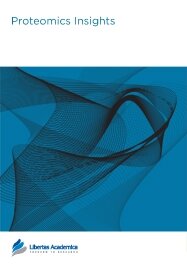

Publication Date: 25 Sep 2009
Type: Commentary
Journal: Proteomics Insights
Citation: Proteomics Insights 2009:2 23-26

Proteomic discoveries are usually made using database searches for identification of proteins in a given protein sample derived from cells or tissues. High throughput searches leave a number of peptides not analyzed for a variety of reasons, such as posttranslational modification or a mutation that results changes in the peptide that is not present in databases. Such mutations may be critically important in causing disease conditions. Accounts from ocular diseases are presented where the search provided results often from non-conventional databases (such as structural database instead of protein database) due to the presence of information about a mutant peptide. We contemplate that better algorithms and the ability to determine probabilities of different amino acids in the available sequence may permit combinatorial analysis with genomics which may help identify new disease associated mutations directly from the sequence of the captured peptides. In addition, the de novo analysis of spectra of the unidentified peptides may provide mutation or polymorphism information enabling additional insight about the disease association of a mutation or posttranslational modification.
PDF (496.98 KB PDF FORMAT)
RIS citation (ENDNOTE, REFERENCE MANAGER, PROCITE, REFWORKS)
BibTex citation (BIBDESK, LATEX)


I have published more than thirty research papers in internationally reputed high impact factor journals including Libertas Academica publications, Proteomics Insights and Analytical Chemistry Insights. I have no hesitation in saying that Proteomics Insights is highly efficient for its rapid and high quality review process and keeping the authors informed at each stage of the publication process. I recommend this journal for students, teachers and research workers who wish to publish their work. ...
Facebook Google+ Twitter
Pinterest Tumblr YouTube